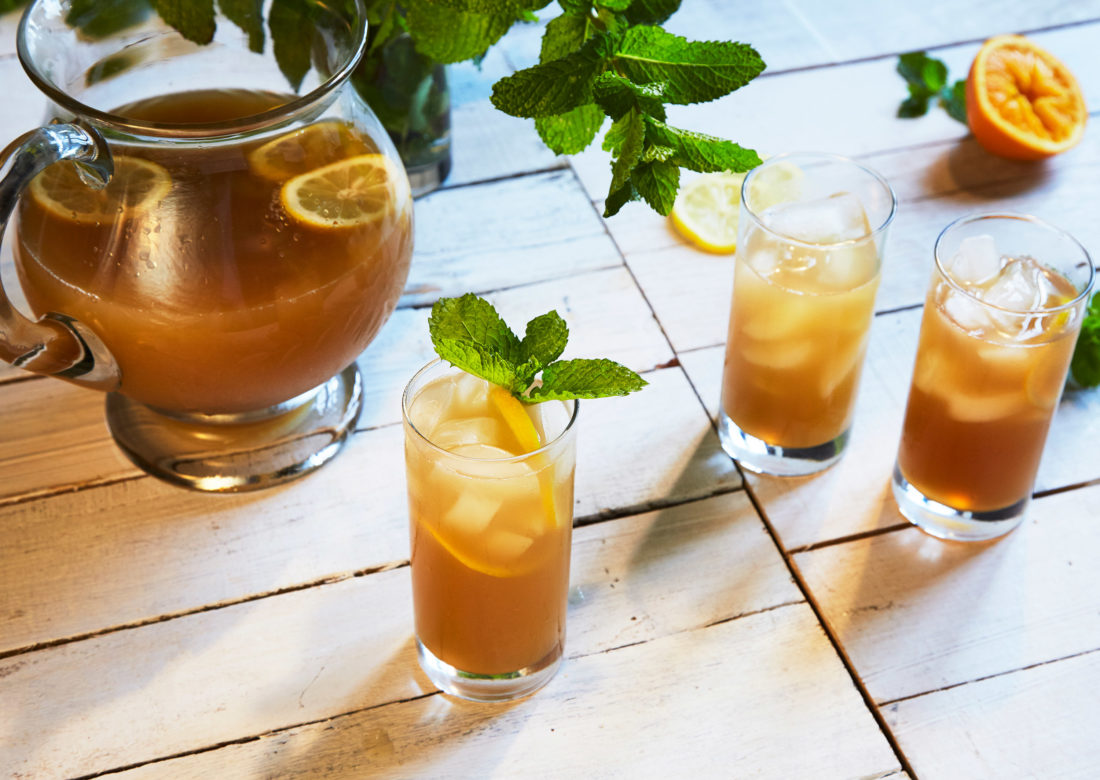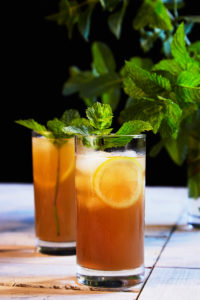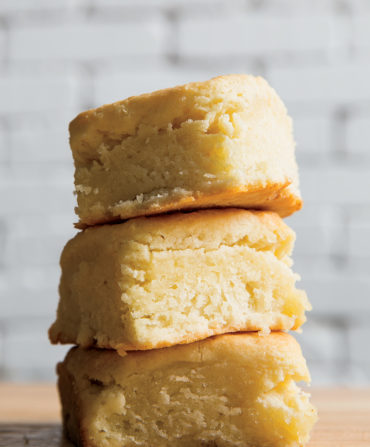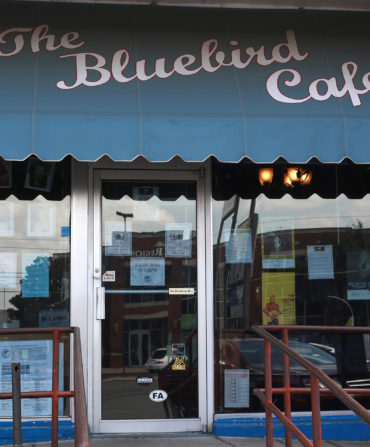Know where to look, and you’ll find Fruit Tea—or Fruit Punch or Tea Punch, as it’s also called—on menus all over Nashville, from biscuit houses to barbecue joints, bagel shops to burrito restaurants. It’s a concoction of brewed sweet tea with orange juice, lemon, and sometimes other fruit juices, served in everything from crystal glasses to plastic cups, and livened up with cinnamon, sprigs of mint, or floating discs of lemon. While some dislike its sweetness, which can verge on syrupy, others—who are equally passionate—believe it’s liquid gold.
What everyone does agree on, though, is that nobody knows why Fruit Tea is so closely associated with Nashville. It’s sort of like music or meat-and-threes. Nashville didn’t necessarily invent any of those wheels, but its residents have sure taken them for good long spins.
Local legend Daisy King opened her Miss Daisy’s Tearoom (now Kitchen) in Franklin, just south of Nashville, in 1974. She served her first customers Tea Punch when she was just twenty-seven, and though her business has moved and changed over the years, Tea Punch is forever on her menu—hers with the sweetness of pineapple juice. “People tell me in this Middle Tennessee area that I was the first person who served it to them,” King says. “We sell gallons and gallons and gallons of it.”
A former employee of King’s, Kathy Bonnet, struck out on her own selling pimento cheese and chicken salad sandwiches from her yellow Volkswagen until she opened a lunch spot called the Picnic Café in 1983. Today, the space still bustles with silver-haired ladies and fashionable Belle Meade women in linen tunics—nearly all of whom sip Bonnet’s Tea Punch, which offers a kick of cinnamon.
Carole Nelson remembers Fruit Tea from the executive dining rooms of local banks such as Commerce Union, where her husband was president and chairman of the board. Nelson’s mother ran the bank’s dining room for more than a decade beginning in the late 1960s. “Oh, everybody loved Mama’s fruit tea,” Nelson says. At seventy-nine, she still makes it, though with less sugar, when she has friends over for bridge. “It’s a loving touch by a host,” she says.
But if Fruit Tea took its hold among Nashville’s ladies who lunch, it has since made its way to the masses. Caribbean-themed Calypso Café has a popular version, as does Baja Burrito. Knockout Wings, Star Bagel, McCabe Pub, Corner Market, too. It’s available at old-school favorites like Mere Bulles and upstarts like the wildly popular Biscuit Love.
At the Frist Art Museum’s downtown café, Fruit Tea is still a hit for locals, who stop in from nearby office and federal buildings and order it with house-made potato chips as a kind of modern tea-time ritual. Kim Newsom began making the tea about fifteen years ago when the café opened, and still goes through about 15 gallons every three days. Neither Newsom nor café supervisor Pamela Howell know where the recipe came from, though.
That’s part of the mystery. Tracing Fruit Tea’s origin, you’ll find a recipe for it in the pages of a Junior League of Nashville early-1964 cookbook, as well as compilations from the 1970s from the Retired Teachers Association and the Sisters and Alumnae of St. Cecelia School. While many people say they don’t see Fruit Tea or Fruit Punch outside Middle Tennessee—or at least as often—King says she grew up with it in Georgia.
But maybe the provenance isn’t what matters. Like country music, Nashville’s Fruit Tea tradition was fed by countless streams. For King, the explanation—and the appeal—is simple: “Classics,” she says, “never die.”









